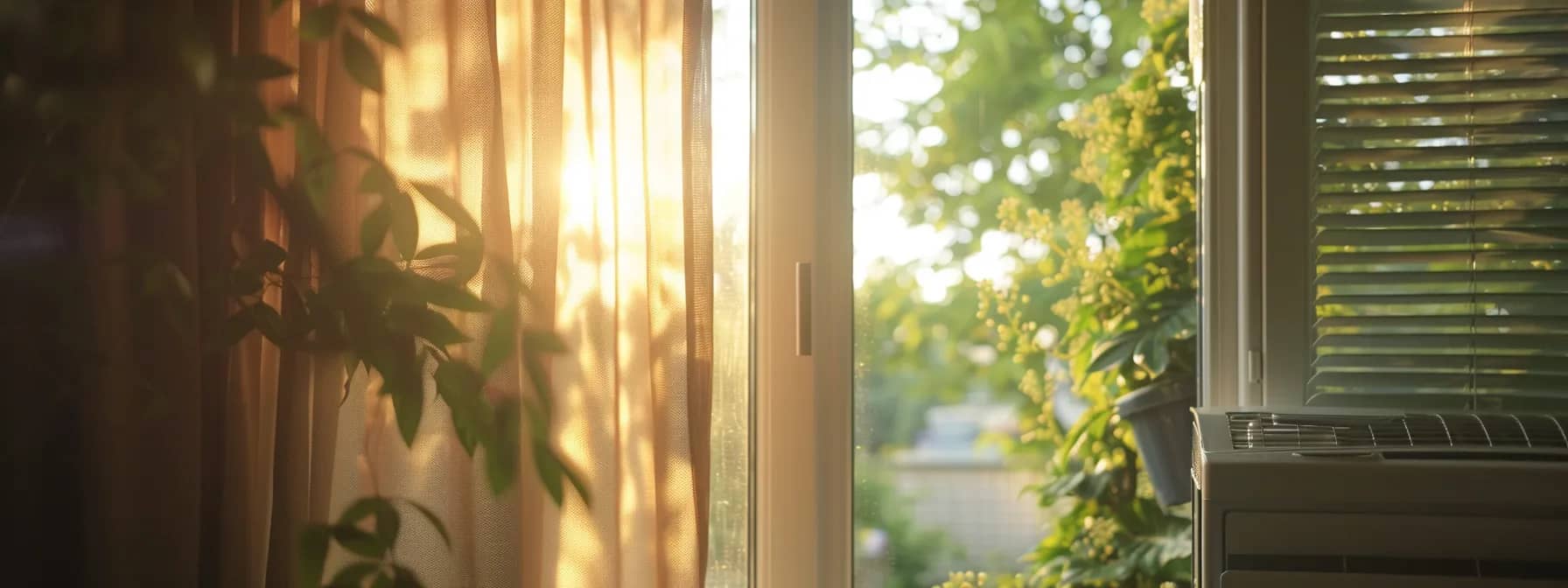
HVAC units are one of the most critical systems in our homes. Without them, we’d be uncomfortable most of the time. So, when they aren’t working correctly, it’s vital to quickly identify and resolve the issue. Some minor problems can be fixed quite easily by homeowners themselves. But there are other times when a professional technician is needed so your system doesn’t get damaged and sacrifice years of optimal performance.
Is your air conditioner struggling to keep your home cool? Recognizing critical signs that your AC requires immediate repair can save you from costly damages and discomfort. This article will address weak airflow, warm air blowing instead of cool, and unusual noises, highlighting how these issues may relate to problems like coolant leaks or trapped debris. By understanding these signs, homeowners can take timely action and ensure their air quality remains high, preventing issues like mildew growth. Engaging with this content will empower readers to identify problems early and seek help from a qualified technician.
Weak or No Airflow Requires Immediate Attention
Weak or no airflow from air conditioning vents can indicate serious issues that need prompt attention. Common causes may include problems with the fuse, clogged filters, or duct blockages, each affecting air circulation and increasing air pollution within the home. Delaying necessary air conditioning repair can lead to further damage and escalate repair costs, making immediate action vital for maintaining comfort and safety.
Recognizing Insufficient Airflow From Vents
Homeowners should be alert to signs of insufficient airflow from their vents, as this can signify underlying issues with their air conditioning system or furnace. Reduced airflow not only leads to discomfort but can also result in poor indoor air quality, allowing bacteria and mold to flourish. Regular maintenance, including filter replacement and duct cleaning, is essential to ensure optimal airflow and to prevent health risks linked to stagnant air.
Common Causes of Reduced Air Circulation
Common causes of reduced air circulation in air conditioning systems often include insufficient refrigerant levels, which can hinder cooling performance. This may also lead to increased humidity levels indoors, exacerbating discomfort and promoting mold growth. An inspection by a qualified technician can identify such issues, while regular maintenance can prevent these signs your AC needs repair from escalating and potentially requiring costly repairs. Homeowners should also consider checking for any coupons that provide discounts on these essential services to maintain their systems efficiently.
Risks of Delaying Repairs for Airflow Issues
Delaying repairs for airflow issues can lead to serious consequences within a home’s climate. Reduced airflow often results in the buildup of dust and allergens, contributing to poor indoor air quality and odors that can affect the health and comfort of all occupants. Furthermore, stagnant air can create a breeding ground for mold, which not only compromises air quality but may also require extensive remediation efforts if left unaddressed.
Warm Air Blowing Instead of Cool Signals a Problem
When an air conditioning system blows warm air, it signals potential issues that demand immediate attention. First, homeowners should check the thermostat settings and functionality, as incorrect settings can lead to ineffective cooling. Next, they must consider potential refrigerant leaks that can hinder cooling performance and impact the system’s life expectancy. Lastly, addressing compressor failures promptly is essential to avoid costly air conditioning replacements.
Checking Thermostat Settings and Functionality
Checking the thermostat settings is an essential first step when an air conditioner blows warm air. Homeowners should ensure that the thermostat is set to ‘cool’ and that the desired temperature is lower than the current room temperature. If the settings are correct, the issue may lie in the electrical wiring or a malfunctioning heat pump, prompting the need to schedule a service with a qualified HVAC technician for thorough HVAC maintenance and inspection.
Potential Refrigerant Leaks Affecting Cooling
Potential refrigerant leaks can significantly impact the cooling efficiency of an air conditioning system, leading to warm air blowing from the vents instead of the desired cool air. When refrigerant escapes, the HVAC system struggles to maintain the correct temperature, prompting homeowners to check the thermostat and duct connections for any irregularities. If leaks are suspected, it is essential to contact a qualified technician to inspect the condenser and repair any issues promptly, preventing costly damage and ensuring optimal air quality within the home.
Importance of Addressing Compressor Failures Quickly
Addressing compressor failures quickly is critical for maintaining the efficiency of an air conditioning system. The compressor is responsible for circulating refrigerant through the evaporator and condenser, ensuring effective cooling. If a homeowner detects warm air blowing from their vents, it could indicate a leak or an air filter issue impacting the compressor’s performance. Prompt troubleshooting is essential to prevent further damage and costly repairs, as continued operation under these conditions can lead to complete system failure.
Unusual Noises Indicate Your AC Needs Repair
Unusual noises from an air conditioning unit signal potential issues that require immediate attention. Identifying different sounds can reveal mechanical problems, such as a loose component or refrigerant leaks, that necessitate professional air conditioner repair. Taking prompt action not only helps prevent moisture-related damage but also guides homeowners in finding emergency ac repair near me when necessary.
Identifying Different Sounds and Their Meanings
Identifying unusual sounds from an air conditioning unit is essential for homeowners to diagnose potential issues. For instance, a rattling noise may indicate loose parts, while a high-pitched squeal can suggest problems with the motor or fan belt. Timely recognition of these sounds allows homeowners to take action, ensuring prompt repairs and maintaining the unit’s efficiency:
Mechanical Problems Behind Strange Noises
Mechanical problems often manifest as strange noises from an air conditioning unit, indicating that immediate attention is needed. For example, a banging sound may suggest internal damage or broken components, while a grinding noise could point to worn-out bearings in the motor. Homeowners should address these sounds promptly to prevent further damage and ensure the system operates efficiently, ultimately prolonging the life of their air conditioning unit.
Preventing Further Damage Through Prompt Action
Responding quickly to unusual noises from an air conditioner is crucial for preventing further damage. For instance, ignoring a grinding sound may lead to component failure that ultimately requires a full system replacement. Homeowners should not hesitate to seek professional assistance when they encounter odd sounds, as early intervention can help maintain efficiency and extend the life of their air conditioning unit:
Strange Odors Point to AC System Issues
Strange odors from an air conditioning system can indicate serious underlying issues that require immediate attention. Musty or moldy smells often suggest mold growth within the unit, while burning or electrical odors may point to serious mechanical or electrical problems. Ignoring these unpleasant smells can have health implications for occupants. Addressing these odors promptly ensures a safe and comfortable living environment.
Identifying Musty or Moldy Smells
Identifying musty or moldy smells from an air conditioning system is crucial, as these odors often indicate the presence of mold within the unit or ductwork. Homeowners should pay attention to any strange scents, especially if they notice them during operation, as this can compromise indoor air quality and pose health risks. Promptly addressing these issues by contacting a qualified HVAC technician ensures the effective remediation of mold and restoration of a safe, comfortable living environment.
Dealing With Burning or Electrical Odors
When homeowners detect burning or electrical odors coming from their air conditioning system, it is crucial to take immediate action. These smells often indicate overheating components, wire insulation failures, or serious electrical problems that can lead to system damage or fire hazards. Engaging a qualified HVAC technician promptly can help diagnose the issue, ensuring the system’s safe and efficient operation while preventing potential health risks associated with lingering electrical scents.
Health Implications of Ignoring Unpleasant Smells
Ignoring unpleasant odors from an air conditioning system can have serious health implications for occupants. Musty smells often indicate mold growth, which may lead to respiratory problems and allergies when left unchecked. Additionally, burning or electrical odors could signify dangerous electrical issues, possibly resulting in fire hazards. Homeowners should be vigilant, as prioritizing prompt repairs can significantly enhance indoor air quality and overall health.
High Indoor Humidity Suggests AC Malfunction
High indoor humidity can indicate a malfunctioning air conditioning system, as effective humidity control is a crucial component of the AC’s function. This section will explore the causes of ineffective humidity control, such as refrigerant issues or faulty components, and offer solutions to restore comfortable humidity levels, ensuring a pleasant indoor environment.
Understanding the AC’s Role in Dehumidification
An air conditioning system plays a critical role in managing indoor humidity levels. During operation, the AC not only cools the air but also removes excess moisture by condensing it on the evaporator coils. When humidity levels remain high indoors, it may indicate that the AC unit is malfunctioning, possibly due to issues such as low refrigerant levels or a clogged drainage system, prompting homeowners to seek immediate repair to restore comfort and indoor air quality.
Causes of Ineffective Humidity Control
High indoor humidity can stem from several issues within an air conditioning system. Low refrigerant levels often hinder the AC’s ability to effectively cool and dehumidify air, leading to discomfort in the home. Additionally, a clogged drainage system can prevent excess moisture from being expelled, further exacerbating humidity problems and creating an environment conducive to mold growth.
Solutions to Restore Comfortable Humidity Levels
To restore comfortable humidity levels within the home, homeowners should first identify and rectify any underlying issues affecting their air conditioning system. This may include recharging low refrigerant levels, which is essential for effective cooling and dehumidification. Additionally, cleaning or unblocking the drainage system can prevent excess moisture accumulation and improve the overall efficiency of the AC unit, ensuring a more comfortable indoor environment.
Frequent Cycling on and Off Requires Expert Intervention
Frequent cycling, also known as short cycling, can lead to serious air conditioning issues that demand immediate repair. Understanding what causes short cycling helps homeowners identify the problem early. This disruption not only inflates energy bills but also shortens the lifespan of the AC unit. Addressing these concerns promptly ensures optimal performance and longevity of the system.
Understanding What Causes Short Cycling
Short cycling in air conditioning systems typically occurs due to several factors, such as an improperly sized unit, which can struggle to maintain desired temperatures. Additionally, thermostat issues or refrigerant problems can trigger frequent on-and-off cycling, impacting the system’s overall efficiency. Homeowners experiencing this issue should seek professional assistance promptly to diagnose and address the underlying causes, preventing further damage and ensuring reliable climate control.
Impact of Short Cycling on Energy Bills
Short cycling not only affects the comfort of a home but also significantly increases energy bills. When an air conditioning unit frequently turns on and off, it uses more energy than necessary to reach the desired temperature, leading to higher utility costs. Homeowners facing this issue should consider scheduling a professional inspection to identify and resolve the underlying problems, ensuring efficient operation and more manageable energy expenses.
How Immediate Repair Extends AC Lifespan
Immediate repair of an air conditioning unit experiencing frequent cycling is essential for extending its lifespan. Each time the system short cycles, it places unnecessary stress on critical components, leading to premature wear and increasing the likelihood of costly breakdowns. By addressing the underlying issues promptly, homeowners can not only preserve the efficiency of their AC systems but also enhance their overall longevity, ensuring a reliable and comfortable indoor environment for years to come.
Recognizing critical signs that an air conditioner needs immediate repair is essential for maintaining comfort and safety in any home. Weak airflow, strange noises, and unusual odors can indicate serious issues that, if ignored, may lead to costly damage and health risks. Homeowners should act quickly to address these problems and consider regular maintenance to ensure their systems operate efficiently. By taking prompt action, they not only protect their investment but also enhance indoor air quality and overall living conditions.





